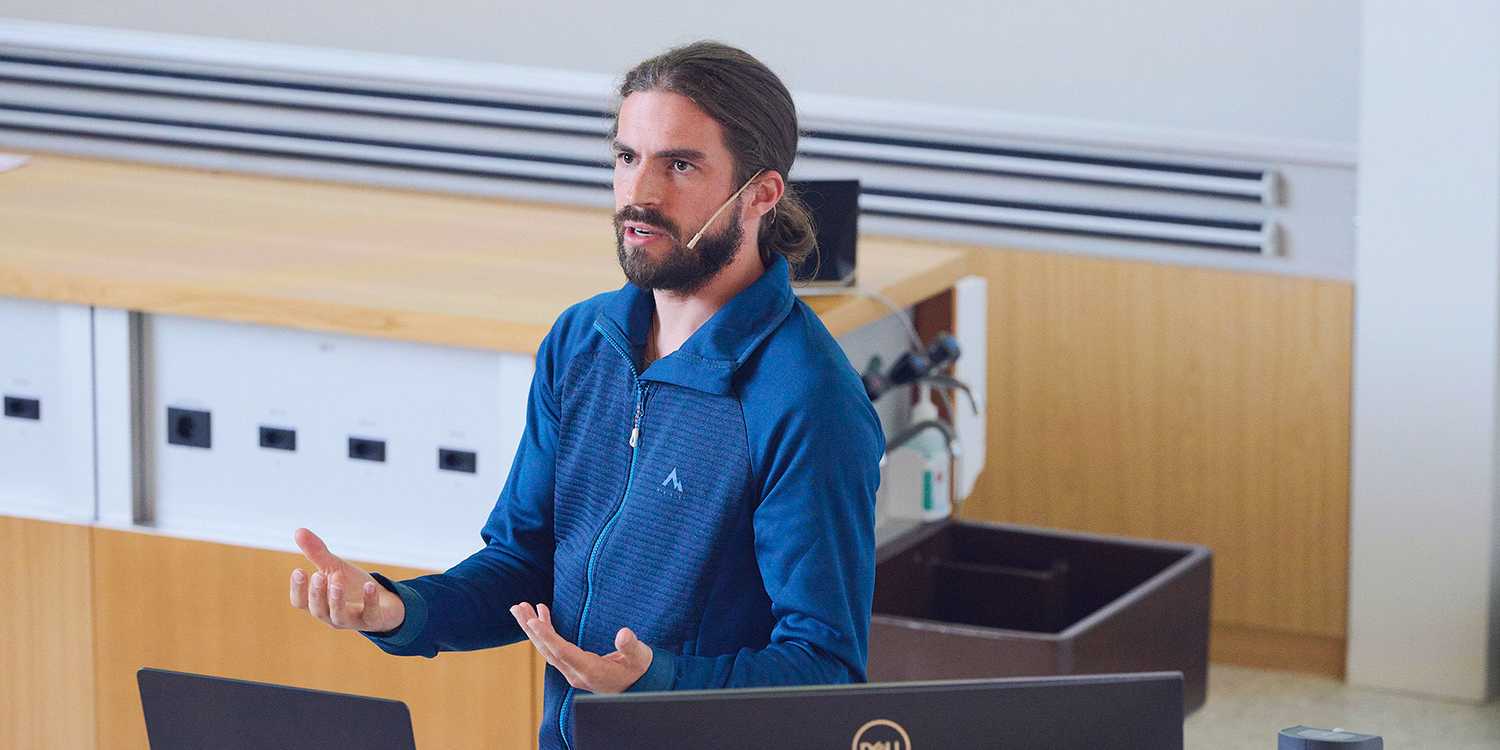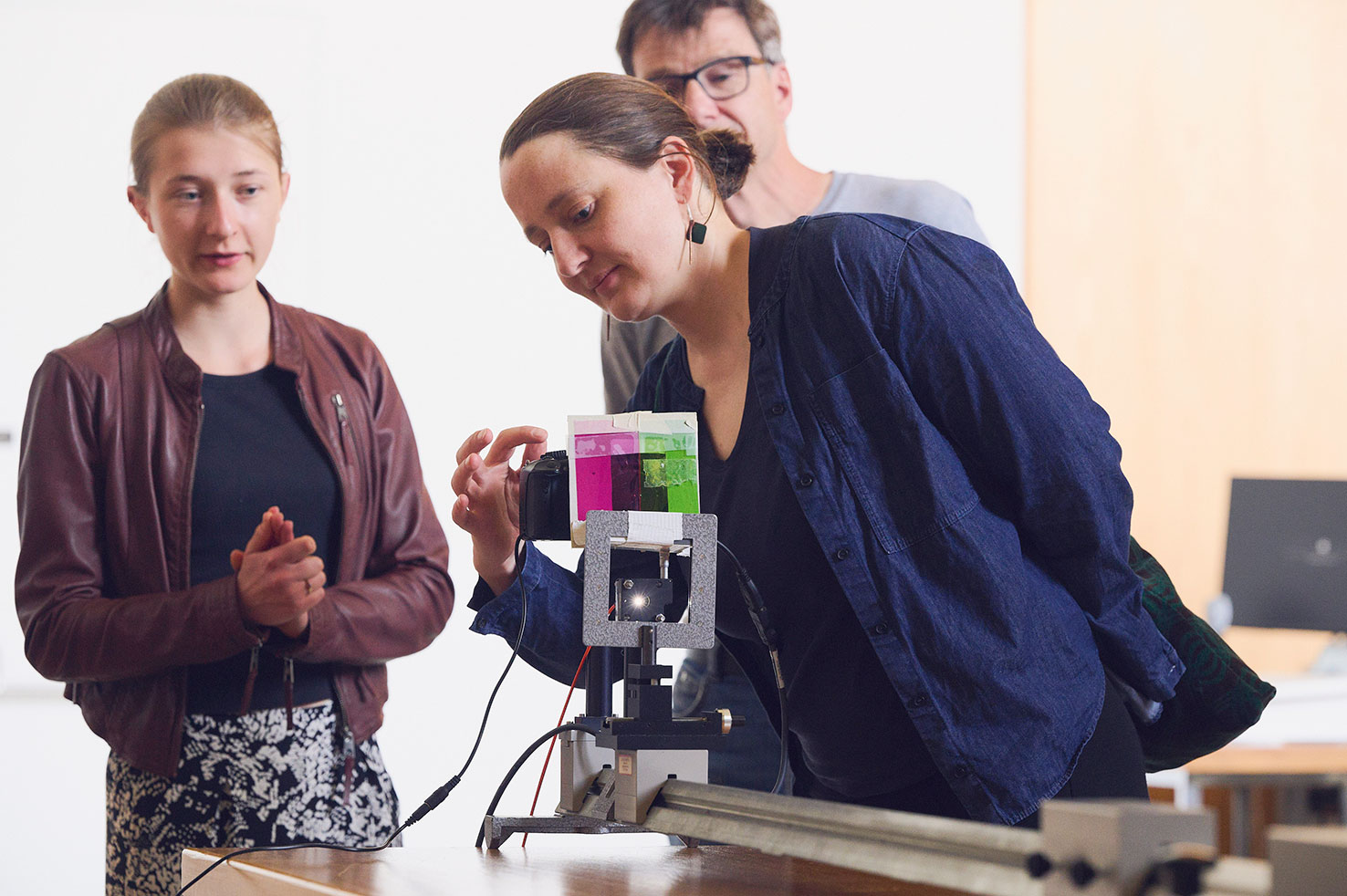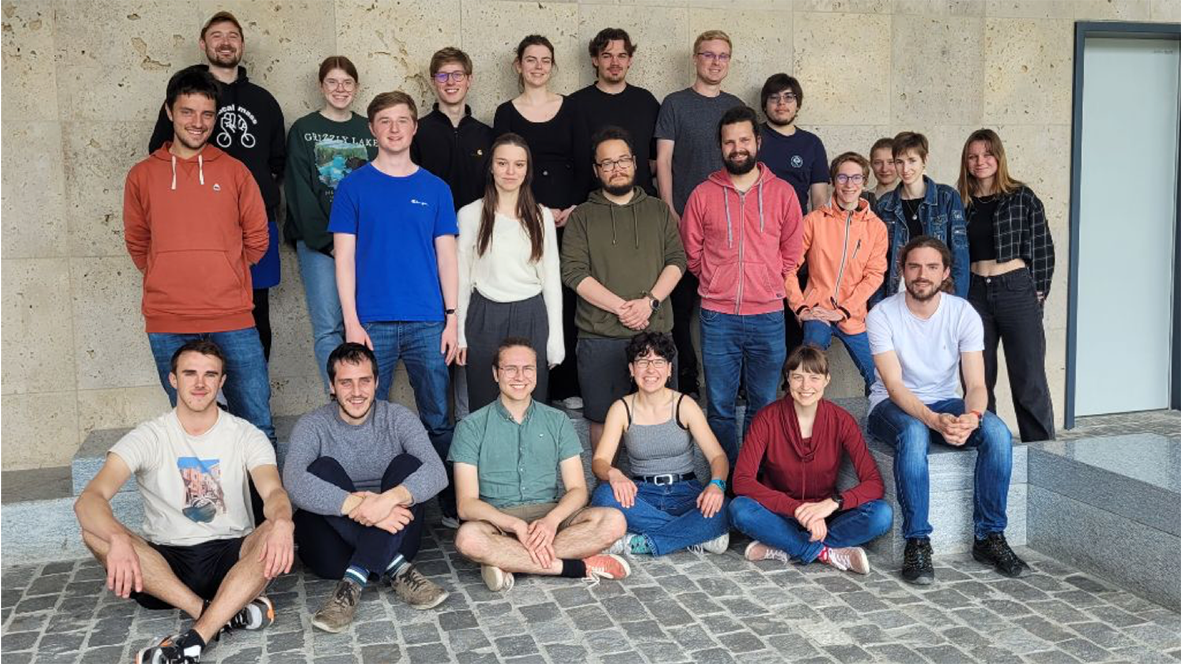PPLUS grows thanks to Innovedum Fund
Physics practicals allow undergraduate students to gain first-hand experience with conducting experiments in solid-state physics, quantum optics as well as nuclear and particle physics. PPLUS, a new project-based module, was launched in 2023 and offers an alternative to standard practicals. Thanks to recent support by the ETH Innovedum Fund, PPLUS will be growing further.

Dr Andreas Eggenberger had been wondering how students can be offered more freedom and creative space in undergraduate physics practicals. He's convinced that students enjoy to define, plan and carry out their own experiments, but this isn't offered by the standard practicals format. Through Professor Daniela Rupp, Eggenberger learned of a 'project laboratory' at the Technical University in Berlin. Following a meeting with Dr Andrea Merli, who runs the initiative at TU Berlin, Eggenberger and Rupp were convinced that it was worth establishing a similar project-based module for practicals in the Department of Physics at ETH Zurich.
From then on, things moved quickly: Eggenberger and Rupp worked out the concept for the Project-based Physics Lab for Undergraduate Students – PPLUS, in short – pilot module within three months. Later, Eggenberger took over the detailed planning and implementation.

A key aspect of PPLUS is that students work in teams of six: this promotes teamwork as well as project management skills. Teams must choose which experiments to carry out themselves. This means formulating a research question and identifying which experimental physics method is suitable for answering it. Documenting the development of the project and presenting the outcome of the experiment also help students to learn about scientific communication. Each team is supervised by a teaching assistant (TA) who supports students throughout the semester. One of the major challenges of the module is to ensure that students achieve the learning objectives of PPLUS and carry out their planned experiments successfully and safely despite the great freedom they are given. For this reason, weekly updates between the TAs and Eggenberger and Rupp is crucial.
The first implementation of PPLUS, which took place in last year's spring semester, saw the participation of 18 students supervised by three TAs. In the future, supervision will be provided by six supporting TAs, ideally chosen among students who already completed the PPLUS module. As additional supervision, each more experienced TA will oversee the work of three groups of undergraduate students. Hiring the six supporting TAs is now possible thanks to funding from the ETH Innovedum Fund.

The feedback from students who took part in the first iteration of PPLUS was exceptionally positive and shows that the new module achieved its goals. However, Eggenberger sees further room for improvement. For example, he would like to create a wiki to allow students to organise and document the ideas, notes, sketches and instructions generated during their experimental projects: this type of documentation practice will contribute to the long-term success of PPLUS.
There are 36 available places for the next iteration of PPLUS, but 70 students have already signed up. In order to meet such high demand, the module might be held in both spring and autumn semesters in the future.
Translated from German by Gaia Donati